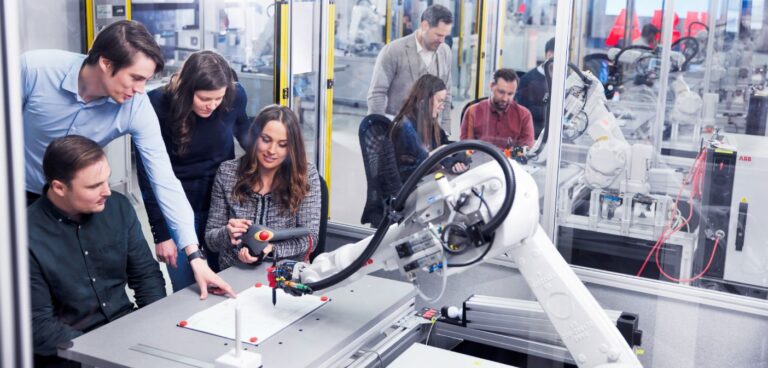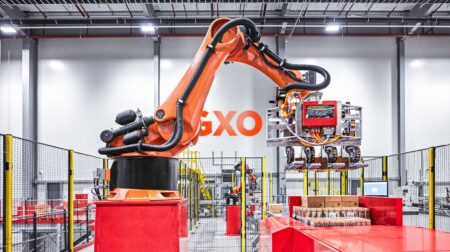A global ABB survey has revealed a growing trend in US and European businesses toward re-shoring or nearshoring operations to build resilience in the face of global challenges – but at the same time, a significant education gap in the skills necessary for these strategies to succeed.
“The world is constantly evolving – businesses are shifting existing structures and adopting new technologies to future-proof their operations for a variety of challenges and uncertainties, with robotic automation playing a key role,” said Sami Atiya, president of ABB’s robotics and discrete automation business.
“We need significant investment in continuous education to prepare our existing and future workforce to thrive in an age of robotics and automation, important not only to prepare for the widespread shifts we are seeing, but to create prosperous societies going forward.”
ABB’s 2022 survey of US and European business leaders revealed that 74% of European and 70% of US businesses are planning to re- or nearshore operations to build their supply-chain resilience in response to labour shortages, the need for a more sustainable global footprint and global uncertainty.
According to ABB, the majority of these businesses view automation as the enabler of these shifts, with 75% of European and 62% of US businesses surveyed planning to invest in robotics and automation in the next three years to facilitate this shift in operations.
Read more: A third of UK businesses investing in automation due to staffing concerns, HSBC finds
However, ABB’s 2022 global education survey found a significant gap in the education and training needed to ensure the skills necessary for work in increasingly connected and automated workplaces.
Of the global education professionals surveyed, 80% believe robotics and automation will shape the future of employment in the next 10 years, while only one in four education institutions currently use robots as part of their teaching programmes.
“Change needs to happen now,” added Atiya. “As companies turn to robotic automation to offset labour shortages, improve efficiency and increase resilience, workers need the skillsets to use automation to perform their jobs and augment their own roles.
“Businesses need to join forces, cooperating with education institutions and governments to ensure that society is prepared for jobs of the future. Only through this can we fully utilise flexible automation and unlock value from the ongoing re-industrialisation.”
To discover how robotics and automation technologies can improve efficiency, reduce costs and give you the competitive advantage, register free to visit Robotics and Automation – the UK’s largest exhibition dedicated to these technologies – at the Coventry Building Society on 01-02 November 2022. Click here for more information about this unmissable industry event!








